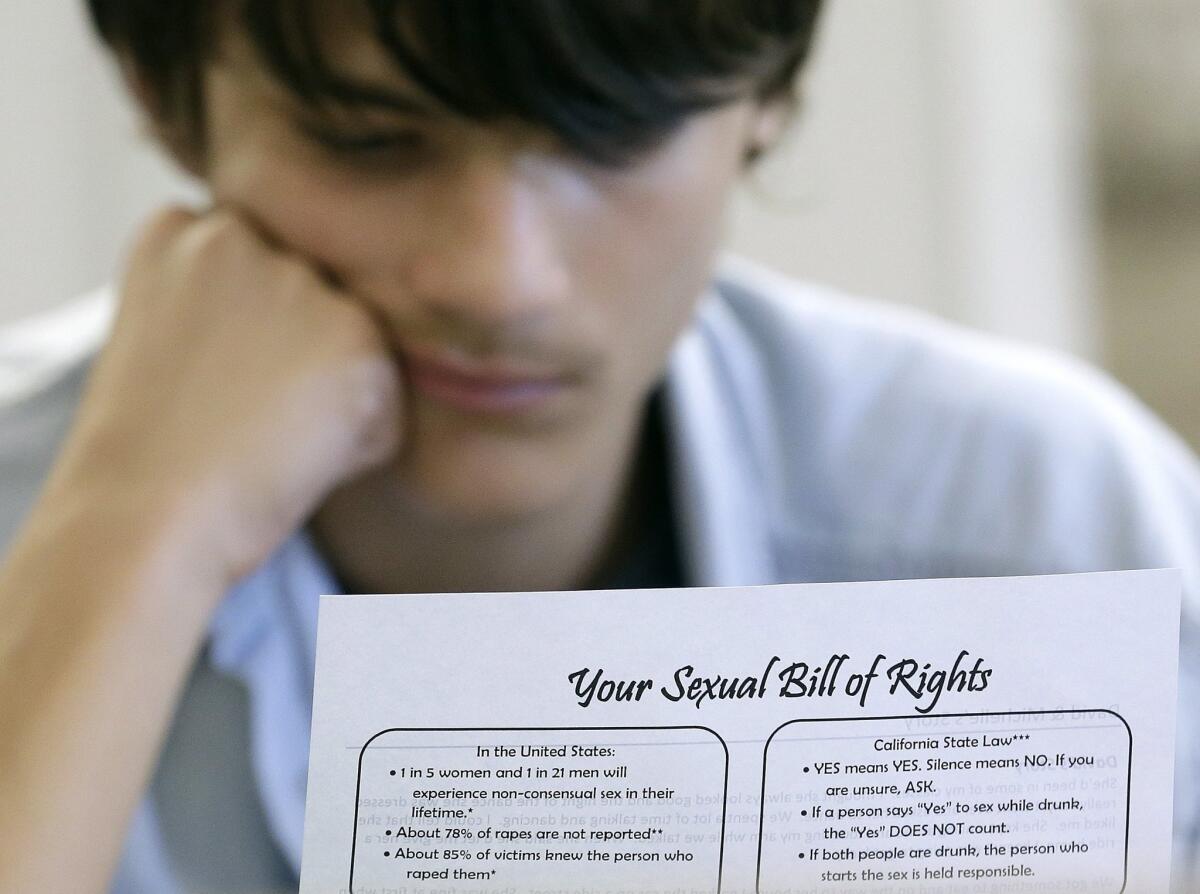CDC grades American schools on how well they teach sex education

The CDC gives American schools generally good grades for teaching sex education, but federal health officials see plenty of room for improvement.
- Share via
American high schools got generally good marks for their teaching of topics related to sex education, but there are still many areas in need of improvement, according to a new report card from the Centers for Disease Control and Prevention.
Across the country, 94% of high schools taught students the benefits of abstaining from sex, 88% explained why less is more when it comes to the number of sexual partners, and 92% discussed how family members, friends and the culture at large influence their sexual behaviors. In addition, 95% of schools explained to ninth- through 12th-graders how sexual transmitted diseases are spread and the health consequences of an STD infection, while 85% of schools taught students how to get products and services to help them prevent STDs and pregnancy.
High schools were less eager to give students specific information about condoms. For instance, 70% explained why it was important to use condoms correctly and consistently, 60% told students how to get condoms, and 54% demonstrated how to use them correctly.
“We need to do a better job of giving our young people the skills and knowledge they need to protect their own health,” Dr. Jonathan Mermin, who oversees the CDC’s HIV and STD prevention efforts, said in a statement.
Sex is often a taboo subject in schools, but public health officials say it’s essential to teach students how to reduce their risk of getting HIV and other STDs. There’s certainly evidence that many of them are in the dark – of the nearly 20 million new sexually transmitted infections reported each year, almost half are diagnosed in teens and young adults in their early 20s, CDC data show.
Accurate and specific sex education classes can also reduce teen pregnancy, which makes girls much more likely to drop out of school and sets their children on a path toward worse health and lower achievement.
“Lack of effective sex education can have very real, very serious health consequences,” Dr. Stephanie Zaza, director of CDC’s Division of Adolescent and School Health, said in a statement. “Young people who have multiple sex partners, don’t use condoms, and use drugs or alcohol before sex are at higher risk for HIV and other sexually transmitted infections. School-based sex education is a critical opportunity to provide the skills and information they need to protect themselves.”
Some states got higher grades for sex education than others. Three states – Delaware, New Hampshire and New Jersey – scored 100% for teaching the benefits of abstinence, and another 15 states scored at least 95%. But only 56% of Arizona schools explained the value of abstinence, as did a mere 60% of schools in Alaska.
Similarly, only two states – New Jersey and Vermont – had more than 90% of high schools teach students how to use condoms. In two other states – Arizona and South Dakota – less than one-third of schools did so.
Overall, only 46% of American high schools covered all 16 topics related to preventing pregnancy, HIV and other STDs that government health experts say are essential.
Middle schools got lower grades than high schools, according to the CDC report card. Nationwide, 77% of sixth-, seventh- and eighth-graders learned the benefits of abstinence and 75% were told how STDs are spread. Only 27% of middle school students got information about where to get condoms and 23% learned how to use them correctly.
The grades were published Wednesday in the CDC’s latest edition of its School Health Profiles report, which is based on survey data collected once every two years.
Follow me on Twitter @LATkarenkaplan and “like” Los Angeles Times Science & Health on Facebook.
MORE FROM SCIENCE
Dwarf planet Ceres has a patchwork past and a hazy present
Signs of depression are ‘unacceptably high’ among doctors in training, study finds
Laziness and lack of sleep can shorten your life, especially when combined, study says







